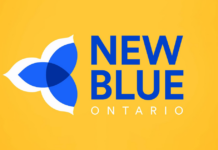A new digital privacy report published on Monday found that a majority of people did not share their coronavirus related health data or did not use a government contact-tracing app.
According to the Ernst & Young (EY) Global Consumer Privacy Survey 2020, 64% of global consumers refused to share their health data related to the coronavirus.
When broken down by age groups, Generation Z (49%) and Millennials (45%) were the most willing to depart with their health data, followed by Generation X (32%) and Baby Boomers (21%).
The report was commissioned by EY and conducted by the Financial Times company Longitude through July and August 2020.
“The survey of 1,901 consumers in Asia-Pacific, Europe, the Middle East, India and Africa (EMEIA), and the Americas investigated attitudes and approaches to data privacy and data sharing, expectations of how organizations will use personal data, and how data privacy is adapting in the post-pandemic world,” wrote the report’s authors.
When it comes to the use of government-created contact-tracing applications like Canada’s own coronavirus alert system, willingness to use the software was down sharply over the past six months.
The report found that only 29% of Generation Z and 26% of Millennials said that they used a government contact-tracing application, while only 23% of Generation X and 19% of Baby Boomers reported the same.
According to Ontario’s former information and privacy commissioner and the Executive Director of the Global Privacy & Security by Design Centre Ann Cavoukian, the lack of consumer trust detailed by the report was unsurprising.
“People are very very concerned about sharing their data, especially their Covid data. They don’t know what people are doing with this information and they’re at a complete loss of where it’s going to go so in terms of contact-tracing they have no interest in that,” Cavoukian told True North.
“That’s why the COVID Alert, which is the exposure notification app developed in Ontario then adopted across Canada which was based on the Apple-Google framework, that’s the ideal one that should be used because it’s completely privacy protected. It doesn’t collect any personal information, it doesn’t reveal any information, everything is in the hands of the user. That’s the one we need to apply.”
Cavoukian suggested that one of the reasons behind the reluctance to adopt contact-tracing applications could be due to the early flaws detected in other software like the applications rolled out in Alberta and the UK.
“It’s possible because you see there’s already a lot of distrust. There’s a steadily growing mass of distrust in the population so if you add to that with evidence that originally they weren’t going to collect some information and then they moved it in Alberta and elsewhere. So people don’t know what to think, there’s so much distrust they would think “why bother?” Cavoukian said.
“You have to tread very carefully when dealing with people’s health information, especially at a time of such distrust. It’s utter folly to expect that you’re going to have a high response rate.”
A June 2020 survey conducted by Statistics Canada on the Canadian coronavirus alert application found a significantly higher number of Canadians were willing to use the application, while a significant number of people cited privacy concerns regarding the software.
According to the results, 25% of Canadians were very likely to use a contact tracing app if recommended to do so by public health officials, while 31% of respondents said they would somewhat likely use the application.
However, the same survey found that a concern over privacy was the number one reason reported by people who were unlikely to use the application.





















